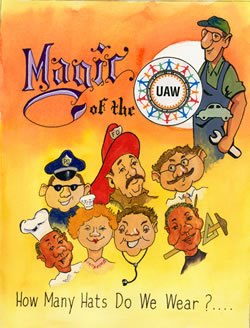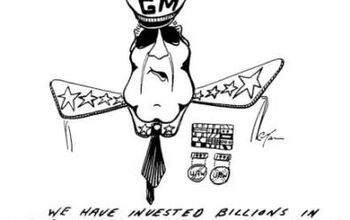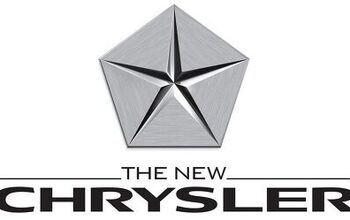UAW Unifies VEBA
The UAW’s Voluntary Employee Beneficiary Association funds were originally negotiated with each of the Detroit automakers, creating three separate funds to handle obligations for each of the OEM’s unionized workforces. But the turmoil of the bailout has left the VEBA funds gasping for cash. With the manufacturers unable to meet their VEBA obligations in cash, the union was forced to take significant stakes in GM and Chrysler instead. Now, the WSJ reports that the three VEBA funds will be unified into a single administrative body. Each automaker will have a separate account within the overall VEBA structure, but the unification should help keep down administrative costs. Still, the fact that significant amounts of Chrysler and GM equity will be held by the same body raises some important concerns.
In fact, the Employee Benefits Security Administration has already had to propose an exemption to its rules just for VEBA. GM and Chrysler’s equity handovers would typically have been too large a transfer of employer securities to meet current EBSA guidelines. Oh, and those assets aren’t “qualified investments” either, under the current rules. Wait, why wouldn’t “common stock representing 17.5% of GM’s equity, $6.5 billion in preferred stock, a $2.5 billion promissory note and stock warrants to purchase up to 2.5% of the new GM’s equity” be considered “qualified investments”? Probably because VEBA is going to have a challenge on its hand when it has to convert those “assets” into cash.
Though the proposed exemption removes any legal issues with the transfer and it clearly has the administration’s backing, the decision exposes VEBA to considerable risk. After all, those rules probably existed for good reasons. And even if those assets do prove to be worth something, the unification still means VEBA and its contributing automakers have to worry about conflict of interest.
“It is conceivable there could be, down the road, conflicts between the accounts of the different car companies in the VEBA,” explains Labor Department spokesman Alan Lebowitz. “But, the [exemption] proposal requires that the committee adopt mechanisms for dealing with any such springing conflicts.” That shouldn’t be too hard . . . right?
More by Edward Niedermeyer
Latest Car Reviews
Read moreLatest Product Reviews
Read moreRecent Comments
- SCE to AUX With these items under the pros:[list][*]It's quick, though it seems to take the powertrain a second to get sorted when you go from cruising to tromping on it.[/*][*]The powertrain transitions are mostly smooth, though occasionally harsh.[/*][/list]I'd much rather go electric or pure ICE I hate herky-jerky hybrid drivetrains.The list of cons is pretty damning for a new vehicle. Who is buying these things?
- Jrhurren Nissan is in a sad state of affairs. Even the Z mentioned, nice though it is, will get passed over 3 times by better vehicles in the category. And that’s pretty much the story of Nissan right now. Zero of their vehicles are competitive in the segment. The only people I know who drive them are company cars that were “take it or leave it”.
- Jrhurren I rented a RAV for a 12 day vacation with lots of driving. I walked away from the experience pretty unimpressed. Count me in with Team Honda. Never had a bad one yet
- ToolGuy I don't deserve a vehicle like this.
- SCE to AUX I see a new Murano to replace the low-volume Murano, and a new trim level for the Rogue. Yawn.


































Comments
Join the conversation
The hope (and that's not a good word in this case, but it is what it is) and a main part of GM's survival plan (b4 and after BK) is that within the next ten years a large majority of the retirees from the 70's (when GM had 50% market share) will die and benefits (health and pension) would come more in line with current workforce. Additionally these retirees would be from the 80's forward when they were no longer treated like pieces of machinery and health cost will fall (for the VEBA). I do not think that the VEBA will last for GM and CryCo, I wonder if the UAW will try and get Ford's employees to allow use of thier funds until equity can be cashed out (I bet solidarity doesn't go that far). And this may be a good thing for the D3, a) the union will have to make concessions for additional funding for the VEBA and b) they will find how hard it is to run a business based on taking a hamburger today and hoping to be able to pay for it on tuesday and the costs/sacrifices that have to be made in the process (could actually be what finally breaks the UAW from within itself).
No actually if you have been following the story there is $10 billion buried in the healthcare bill that would be made available to the VEBAs. They will still be short since the UAW actuaries have used rosey actuarial assumptions regarding the future liabilities of the VEBAs. lw makes a good point about the sale of the equity stakes in GM and Chryco. The government will figure out a way to inflate the value and get cash to the VEBAs. My guess is that they will declare the UAW a bank (after all GMAC/Ally is now a bank)and allow them to pledge the equity at the open window with the FED. The banks have been able to do it with worthless MBOs why not let the UAW do it with worthless car company stock. All I know for certain is that we will be paying for this for a long, long, long time with either government debt or the ill-effects of the Bernanke printing press and resulting ultimate tax of inflation and currency devaluation. Ron Paul for President!